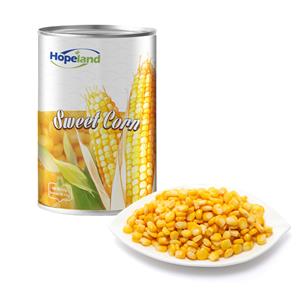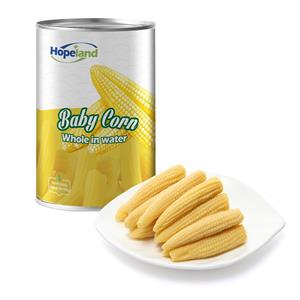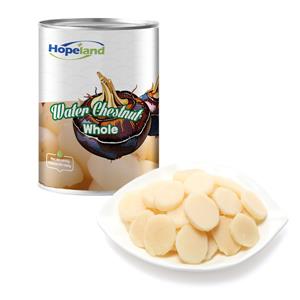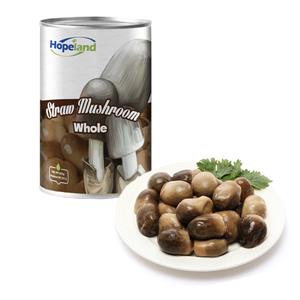Are Canned Fruits Added with Preservatives? A Complete Guide to the Truth Behind Canned Fruit Safety
Canned fruits are a staple in households and restaurants all over the world. From peaches and pineapples to cherries and longans, these convenient ready-to-eat products have become an important part of modern diets. One of the most common questions consumers ask is: Are canned fruits loaded with preservatives to make them last so long? Many people worry that the bright colors and sweet flavors of canned fruits must come at a cost to health, assuming that preservatives are the hidden factor behind their shelf life.
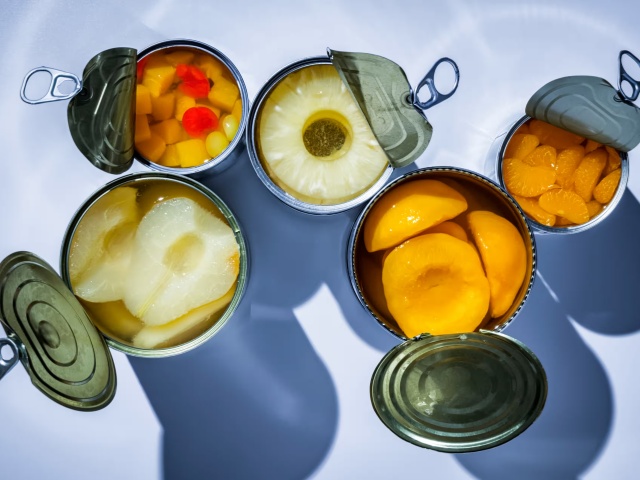
The reality, however, is far less alarming. Most canned fruits do not require added preservatives at all. Instead, their extended shelf life comes from a carefully designed production process that relies on physical methods such as heat sterilization and vacuum sealing rather than chemical additives. In this article, we will take a deep dive into the subject, exploring how canned fruits are made, why preservatives are not necessary in most cases, what exceptions may exist, and what this means for both safety and nutrition.
Understanding the Basics: What Are Preservatives?
Before we discuss canned fruits specifically, it helps to understand what preservatives actually are. Preservatives are substances—natural or synthetic—that are added to food products to slow spoilage caused by microorganisms such as bacteria, yeast, and mold. They can also help prevent chemical changes such as oxidation, which causes discoloration or rancidity.
Common food preservatives include:
Benzoates (such as sodium benzoate), used in acidic foods and beverages.
Sorbates (such as potassium sorbate), used in jams, cheeses, and baked goods.
Sulphites, often used in dried fruits and wines to maintain color and prevent microbial growth.
Nitrites, used in cured meats to inhibit bacterial growth.
Preservatives are not inherently dangerous; in fact, many are naturally occurring compounds. What matters is their concentration and compliance with food safety standards. Regulatory agencies worldwide, such as the U.S. Food and Drug Administration (FDA), the European Food Safety Authority (EFSA), and China’s National Food Safety Standards, strictly monitor acceptable daily intake levels to ensure they do not pose a risk to human health.
Why People Think Canned Fruits Must Contain Preservatives
It’s easy to see why the myth persists. Canned fruits often sit on supermarket shelves for 12 months, 18 months, or even longer without spoiling. Fresh fruit, in comparison, can rot within a week or two. The logic seems straightforward: if canned fruits last longer, there must be preservatives added to them.
Other reasons for this misconception include:
Bright Appearance: Canned fruits often retain a vibrant color that consumers associate with artificial additives.
Sweetness: Many canned fruits are packed in syrup, leading people to confuse sugar syrup with preservatives.
Confusion with Dried Fruits: Dried fruits frequently contain sulphites, and some consumers mistakenly assume the same for canned fruits.
General Distrust of Processed Foods: In today’s health-conscious world, many people associate any type of processing with chemical additives, regardless of the actual methods used.
But the truth is much simpler: the long shelf life of canned fruits comes primarily from vacuum sealing and sterilization, not chemical preservation.
How Canned Fruits Are Made: The Science Behind Preservation
To understand why preservatives are not needed, we need to look at the production process. The technology behind canned foods has been around for more than 200 years and has been continually refined to ensure safety and quality.
1. Selection and Preparation of Fruits
High-quality fruits are selected at their peak ripeness, washed, peeled, pitted, or cut into appropriate sizes. The goal is to capture the fruit when its flavor and nutritional content are at their best.
2. Blanching or Pre-treatment
Some fruits undergo blanching (brief exposure to hot water or steam) to inactivate enzymes that could otherwise cause spoilage or changes in texture. This step also helps maintain color.
3. Filling into Containers
The prepared fruits are filled into sterilized cans, glass jars, or other sealed containers. They are usually packed with liquid, which could be:
Light syrup (sugar solution)
Heavy syrup (higher sugar concentration)
Fruit juice
Water
The liquid not only improves taste and texture but also helps transfer heat evenly during sterilization.
4. Vacuum Sealing
Air inside the container is removed, creating a vacuum. This prevents oxidation (which causes browning) and removes oxygen that could allow aerobic microorganisms to grow.
5. Heat Sterilization
The sealed cans or jars are subjected to high-temperature sterilization, usually in a retort machine. This step destroys harmful microorganisms and enzymes that might otherwise cause spoilage.
6. Cooling and Storage
After sterilization, the containers are rapidly cooled and then labeled and packed for distribution. At this point, the fruit is fully preserved—not by chemicals but by science.
Why Preservatives Are Not Necessary in Canned Fruits
The combined effects of vacuum sealing and heat sterilization mean that canned fruits are already stable and safe. Microorganisms are destroyed during sterilization, and the airtight seal prevents recontamination.
This method is so effective that properly canned fruits can last for one to two years without refrigeration, as long as the can or jar remains intact. Unlike fresh produce, which constantly interacts with air and microorganisms in the environment, canned fruits exist in a sealed micro-environment where spoilage is extremely unlikely.
What About Cases Where Preservatives Are Used?
While the vast majority of canned fruits contain no added preservatives, there are a few exceptions:
Special Formulations: Some canned fruits may include preservatives to achieve specific effects, such as enhancing color stability or extending shelf life in products that undergo less intense heat treatment.
Regulatory Variations: In some regions, manufacturers may be allowed to use minimal amounts of approved preservatives as an extra precaution.
Specialty Products: Some fruit mixtures, tropical varieties, or value-added products might use preservatives to maintain texture or prevent fermentation.
Even in these cases, the preservatives used are strictly controlled. For example, if a canned fruit contains sodium benzoate or potassium sorbate, the amount must comply with international food safety standards, ensuring that consumption poses no health risk.
Are Preservatives Harmful to Health?
This is a question that often worries consumers. In reality, preservatives are only harmful if consumed in large quantities far exceeding regulatory limits. When used properly, they are safe.
For example:
Sodium benzoate has been thoroughly studied and deemed safe at low levels.
Potassium sorbate is widely regarded as non-toxic and effective at preventing mold growth.
Sulphites, although sometimes causing sensitivity in a small percentage of people (especially those with asthma), are safe for the general population within established limits.
Canned fruits, even when they contain preservatives, typically use such small amounts that the average person would never come close to exceeding the recommended intake.
Health and Nutritional Value of Canned Fruits
Another important question is whether canned fruits are as nutritious as fresh ones. Research shows that canned fruits retain most of their vitamins, minerals, and fiber, with some nutrients even becoming more bioavailable after heat treatment.
Vitamin C: Some loss occurs due to heat, but this is often compensated by the stability provided during long storage.
Carotenoids and Lycopene: These antioxidants may actually increase in availability after cooking or canning.
Fiber: Remains largely intact.
Canned fruits are therefore a convenient and safe way to include fruits in the diet, especially when fresh fruits are not in season or are too expensive.
How to Identify Whether a Canned Fruit Contains Preservatives
If you are concerned, here are some tips:
Read the Ingredient Label: By law, preservatives must be listed if they are present. If you only see fruit, water, syrup, or juice, then no preservatives are added.
Look for “No Preservatives” Claims: Many manufacturers highlight this on their packaging as a selling point.
Check Regulations: In many countries, fruit canned in water, syrup, or juice is not permitted to contain added preservatives, making them a safe choice.
Myths and Misconceptions About Canned Fruits
Myth 1: Canned fruits are unhealthy because of preservatives.
Truth: Most canned fruits have no preservatives at all; their safety comes from sterilization and sealing.
Myth 2: Canned fruits are inferior to fresh fruits.
Truth: While some nutrient losses occur, canned fruits remain a healthy option, often more accessible and affordable.
Myth 3: Sugar syrup is a preservative.
Truth: Syrup helps with flavor and texture but is not a preservative in the scientific sense.
Myth 4: Long shelf life always means chemical additives.
Truth: Heat treatment and vacuum sealing are sufficient to ensure long storage
Conclusion: The Truth About Preservatives in Canned Fruits
So, are canned fruits added with preservatives? The short answer is: generally, no. Thanks to modern canning technology, which combines sterilization and airtight sealing, canned fruits do not need preservatives to last for over a year.
Even in cases where preservatives are present, they are used in safe, regulated amounts that do not harm human health. Consumers can confidently enjoy canned fruits as part of a balanced diet, knowing that the extended shelf life is not a sign of hidden chemicals but of proven food science.
Canned fruits offer convenience, accessibility, and year-round availability of delicious fruits. Whether you are making a quick dessert, adding sweetness to your breakfast, or simply enjoying them straight from the can, you can rest assured: canned fruits are safe, nutritious, and rarely—if ever—depend on preservatives.

